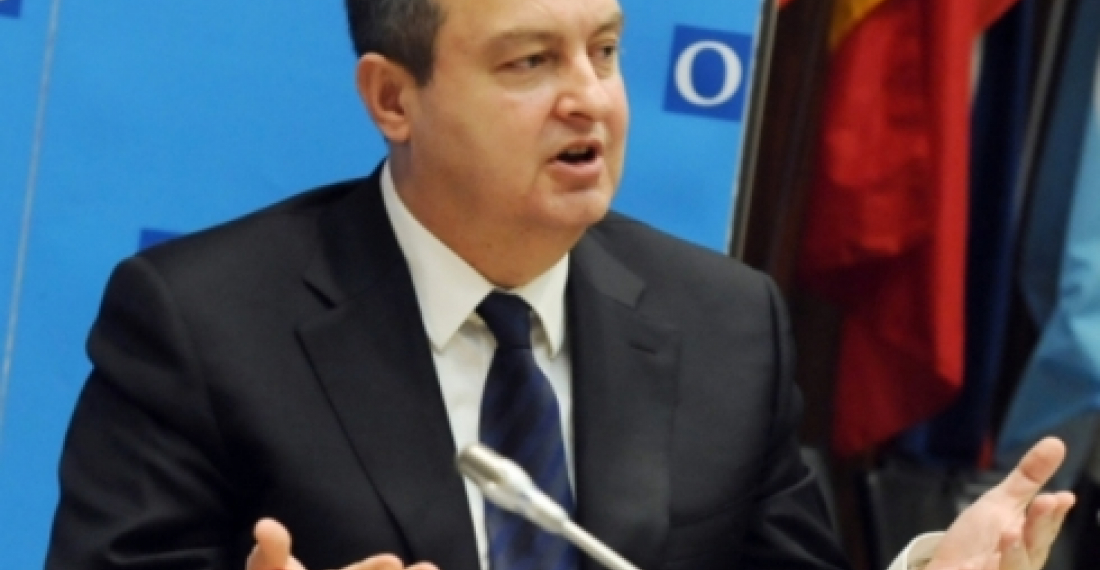The Chairman-in-Office of the Organisation for Security and Co-operation in Europe, Serbian Foreign Minister Ivica Dacic, has arrived in Baku at the start of a regional tour. Serbia holds the chairmanship of the European security organisation during 2015.
In Azerbaijan, the Minister is expected to meet President Ilham Aliev, Foreign Minister Elmar Mammadyarov and political leaders. The visit comes at a time of strained relations between the OSCE and Azerbaijan. The OSCE's presence in Baku was recently downgraded to the level of projects office at the insistance of the Azerbaijani government. Azerbaijan has also taken exception to critical reports from the OSCE's Office for Democratic Institutions and Human Rights (ODIHR) following presidential and parliamentary elections in the country.The discussions between Dacic and Aliev will however likely focus on the Karabakh conflict and efforts to re-start peace negotiations. The OSCE is the leading international organisation mandated to assist the sides in their efforts to find a resolution of the conflict.
From Baku Dacic will travel to Georgia, and after to Armenia.
Commonspace.eu political editor said in a comment that the role of the OSCE Chairmanship is largely symbolic, and is too short to be effective in impacting deep rooted problems such as the Karabakh conflict. Furthermore the attention of the Serbian Chairmanship has been largely focused on Ukraine, where the OSCE is playing a leading role, including with a large monitoring mission on the ground. However given that Serbia is well regarded in all three South Caucasus countries it has some limited capacity to push through modest initiatives, especially in the area of confidence building measures. It is hoped that Dacic will insist on some tangible results from his discussions in Armenia and Azerbaijan, as well as hammer in the importance of the OSCE's norms and principles, in his discussions with leaders in the region in the region.
source: commonspace.eu
photo: OSCE Chairman-n-Office, Serbian Foreign Minister Ivica Dacic (picture courtesy of the OSCE).







